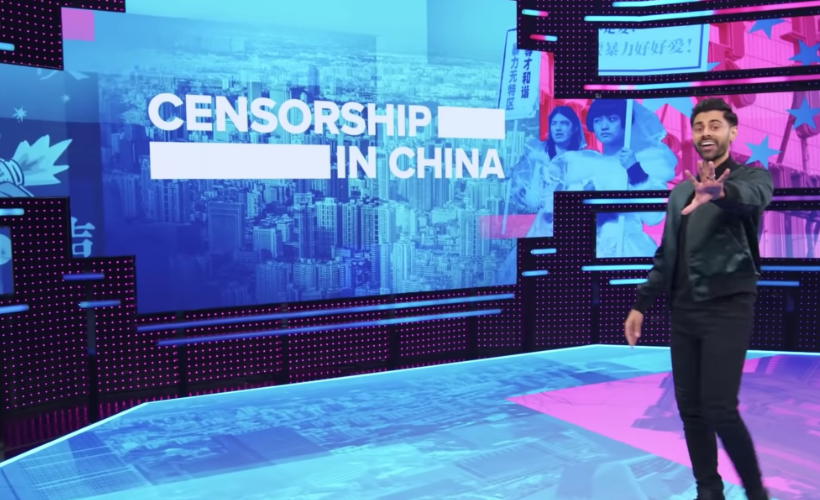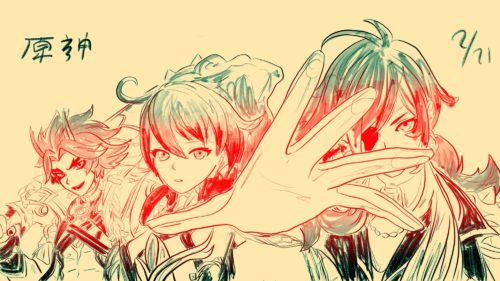‘Patriot Act with Hasan Minhaj’ highlights China’s #MeToo movement, online censorship, and Uyghur repression

In the first episode of its second season, Netflix’s current events and culture satire show Patriot Act with Hasan Minhaj focuses on censorship in China. The topic was a natural choice for the show after an episode on repression in Saudi Arabia in the first season went viral, leading to Netflix pulling the episode in that country. The streaming TV giant faces no similar risks in China, where it is already completely banned. (“Don’t worry, Netflix isn’t in China; the only thing they binge-watch is their own people,” Minhaj jokes.)
China’s censorship regime — and the increasing authoritarianism of the Communist Party’s leader, Xí Jìnpíng 习近平 — has often been the target of American political satire. The China section of spoof news site The Onion has long made fun of the absurdities of contemporary Chinese political life. In 2018, HBO’s Last Week Tonight with John Oliver spent 20 minutes on this “gigantic and consequential country.” Much of it focused on Xi Jinping and his two major ambitions: the Belt and Road Initiative (including Chinese media’s ham-fisted attempts to promote it with absurd music videos— “They basically made Kommunist Kars 4 Kids,” Oliver memorably quipped) and his anti-corruption drive.
But Minhaj goes deeper into specifics on censorship. He focuses on how China’s #MeToo feminist activists have fought censorship and braved extraordinary obstacles to build what is arguably the strongest social movement in China since the 1989 Tiananmen Square protests. Minhaj interviews activist Liáng Xiǎowén 梁晓雯 and summarizes a few #MeToo cases, including the allegations against famous television host Zhū Jūn 朱军. Lǐ Tíngtíng 李婷婷, one of China’s “Feminist Five,” appears on camera to recount how she reacted to her imprisonment and the government’s attempted intimidation of her in 2015: “If they insulted my sexual orientation, it doesn’t work. I’m a lesbian; what’s wrong? What’s up?”
“The CCP thought Peppa Pig was gangsta? Nah, this is gangsta,” Minhaj replies.
Minhaj also highlights China’s imprisonment of a million Uyghur Muslims, a topic that receives barely more attention on American television than it does on Chinese.
Some may quibble with the “infotainment” aspect of the show’s format, and the humor is certainly tailored for a specific younger audience — liberal American millennials and their younger cohort, whom marketing people are calling Gen Z. Yet the show covers complex topics with remarkable accuracy and nuance. If this is the only way that young Americans are going to be informed about important topics like China’s #MeToo movement, Beijing’s controlling vision for cyberspace, and the atrocities occurring in Xinjiang, then, okay: More smart, well-researched comedy on China, please.






